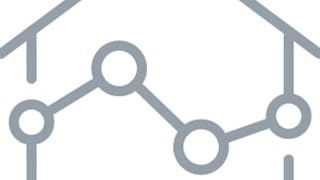You’re almost there! This is the sixth course in the Google Advanced Data Analytics Certificate. In this course, you have the opportunity to complete an optional capstone project that includes key concepts from each of the six preceding courses. During this capstone project, you'll use your new skills and knowledge to develop data-driven insights for a specific business problem.

Google Advanced Data Analytics Capstone
Seize the savings! Get 40% off 3 months of Coursera Plus and full access to thousands of courses.

Google Advanced Data Analytics Capstone
This course is part of Google Advanced Data Analytics Professional Certificate

Instructor: Google Career Certificates
68,433 already enrolled
Included with
1,400 reviews
What you'll learn
Examine data to identify patterns and trends
Build models using machine learning techniques
Create data visualizations
Explore career resources
Skills you'll gain
- Data Science
- Exploratory Data Analysis
- Data Storytelling
- Regression Analysis
- Data Analysis
- Machine Learning
- Predictive Modeling
- Statistical Analysis
- Portfolio Management
- Project Design
- Statistical Methods
- Artificial Intelligence
- Data Visualization
- Business Analytics
- Machine Learning Methods
- Advanced Analytics
- Analytical Skills
- Data Presentation
Tools you'll learn
Details to know

Add to your LinkedIn profile
4 assignments
See how employees at top companies are mastering in-demand skills

Build your Data Analysis expertise
- Learn new concepts from industry experts
- Gain a foundational understanding of a subject or tool
- Develop job-relevant skills with hands-on projects
- Earn a shareable career certificate from Google

There are 3 modules in this course
Earn a career certificate
Add this credential to your LinkedIn profile, resume, or CV. Share it on social media and in your performance review.
Instructor

Offered by
Explore more from Data Analysis
 Status: Free Trial
Status: Free Trial Status: Free Trial
Status: Free Trial Status: Free Trial
Status: Free Trial Status: Free Trial
Status: Free Trial
Why people choose Coursera for their career

Felipe M.

Jennifer J.

Larry W.

Chaitanya A.
Learner reviews
- 5 stars
87.50%
- 4 stars
10.57%
- 3 stars
1.35%
- 2 stars
0.35%
- 1 star
0.21%
Showing 3 of 1400
Reviewed on Nov 30, 2024
This course is outstanding and helpful, This is a friendly course, I learn allot about Data Science, Data Analyst after clearing this course.
Reviewed on Nov 5, 2023
it was good but machine learning modules can be more interesting with much more graphics and code examples
Reviewed on Sep 2, 2024
Nice and very challenging training but this knowledge very usefully for our organization to achieving target.

Open new doors with Coursera Plus
Unlimited access to 10,000+ world-class courses, hands-on projects, and job-ready certificate programs - all included in your subscription
Advance your career with an online degree
Earn a degree from world-class universities - 100% online
Join over 3,400 global companies that choose Coursera for Business
Upskill your employees to excel in the digital economy

